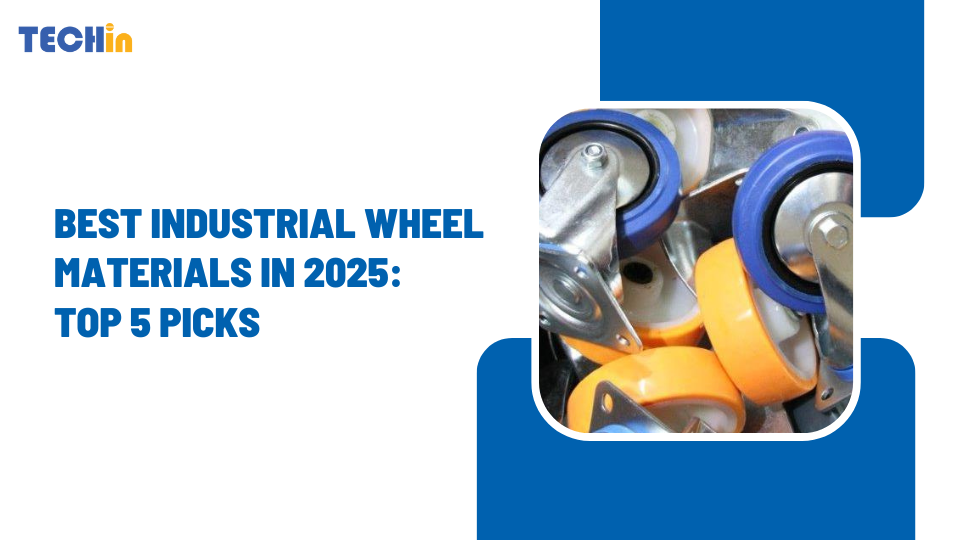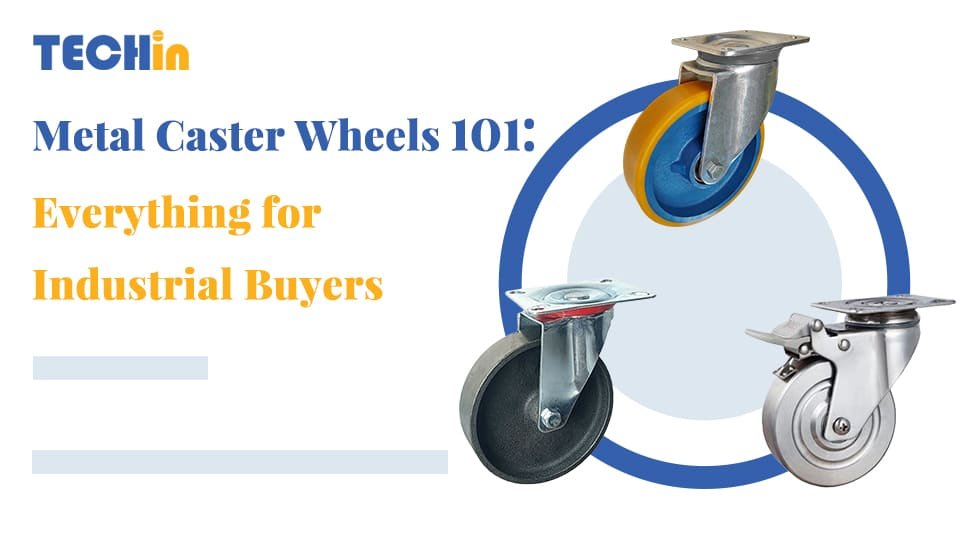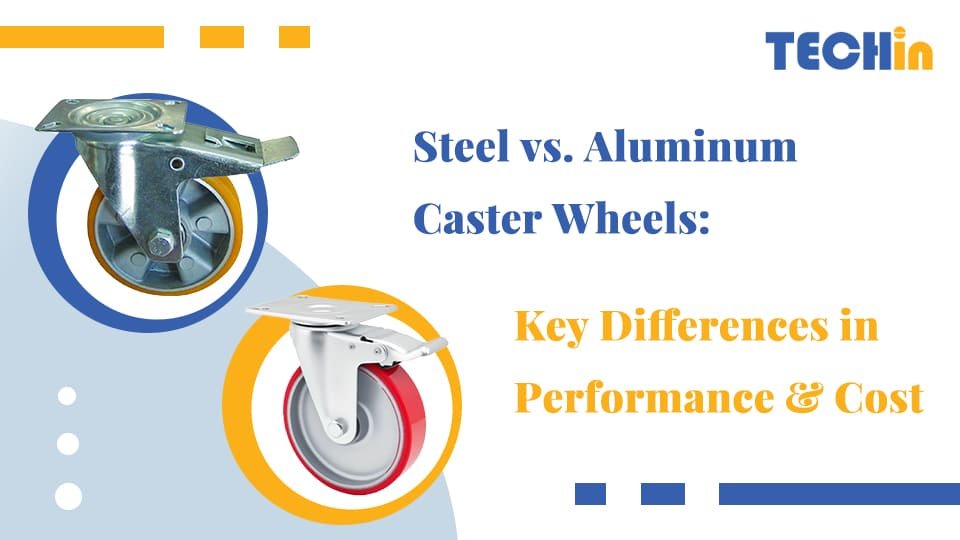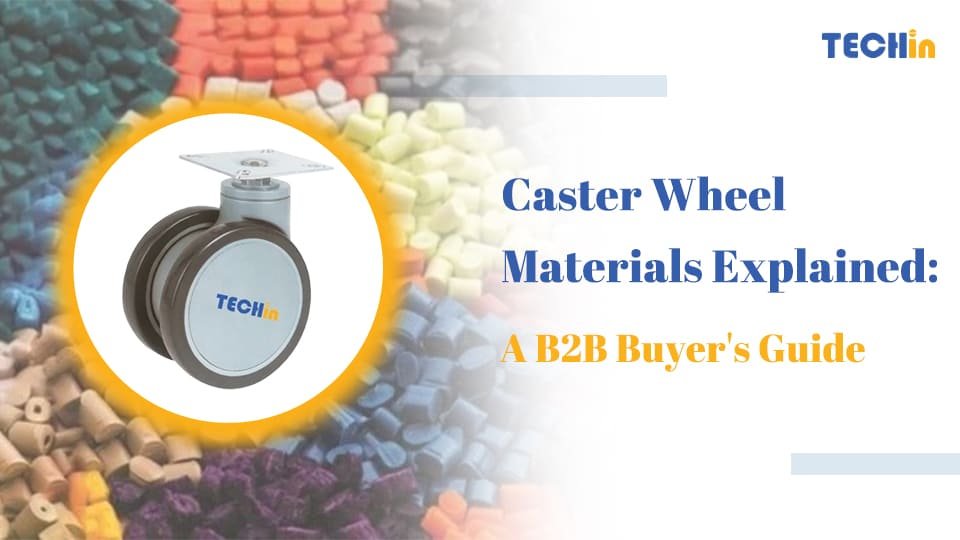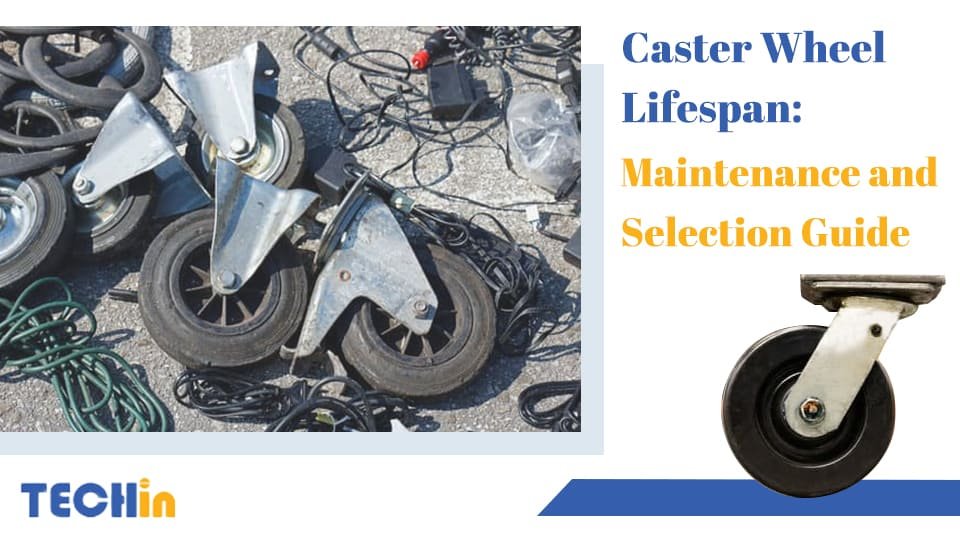Introduction
If you pick the wrong industrial caster wheel material, you’ll have to deal with downtime, floor damage, or frequent replacements. With new materials coming out and global sourcing changing by 2025, it’s harder than ever to make a decision. This guide will make it easier for you to choose and show you the top 5 industrial wheel materials that are trusted around the world for being durable and cost-effective.
The top industrial wheel materials in 2025 are polyurethane (PU), thermoplastic polyurethane (TPU), polyamide (PA6/nylon), forged steel, and cast iron. PU and TPU are great for protecting your floors and resisting wear and tear. PA6 is a good balance of strength and affordability. Forged steel and cast iron are the best for carrying heavy loads and lasting a long time. These materials are the best because they’re durable, cost-effective, and work well on industrial surfaces.
If you’re sourcing wheels for warehouses, factories, or transport trolleys, here’s what you need to know about each material.
Polyurethane (PU): Why It’s Still the Best All-Around Industrial Wheel Material
- Pros:
✔️ Non-marking
✔️ Chemical and oil resistant
✔️ Excellent abrasion resistance
✔️ Quiet on floors - Cons:
❌ Higher upfront cost
❌ Not ideal for extreme heat or rough terrain - Best Use Cases:
PU is ideal for warehouses, logistics centers, and automated systems where smooth rolling and floor protection are priorities. Perfect for mixed floor surfaces like epoxy, tile, and polished concrete.
👉 Learn more about polyurethane caster wheels
Thermoplastic Polyurethane (TPU): The Modern Upgrade to PU?
- Pros:
✔️ Better elasticity than PU
✔️ High traction
✔️ Resistant to tears, oils, and many chemicals - Cons:
❌ UV-sensitive
❌ Slightly costlier than standard PU - Best Use Cases:
Great for light-to-medium industrial loads, robotics, and precision-guided equipment where control, quietness, and durability are key.
Polyamide (PA6 / Nylon): Lightweight and Strong — But Is It Right for You
- Pros:
✔️ High tensile strength
✔️ Corrosion-resistant
✔️ Budget-friendly - Cons:
❌ Noisy on hard floors
❌ May scratch sensitive surfaces - Best Use Cases:
Perfect for cleanroom trolleys, indoor logistics, and automated machinery with moderate weight requirements. A popular pick in the EU for controlled environments.
Forged Steel Wheels: Built for Brutal Loads and Extreme Conditions
- Pros:
✔️ Very high load capacity
✔️ Excellent durability and impact resistance
✔️ Works in high-temperature or corrosive environments - Cons:
❌ Noisy during operation
❌ Can damage unprotected floors
❌ Heavy, adds weight to equipment - Best Use Cases:
Forged steel wheels are perfect for heavy-duty industrial applications, including steel plants, foundries, shipyards, and manufacturing environments where extreme loads, rough terrain, and heat are common. These wheels thrive where softer materials would quickly wear out.
Cast Iron Wheels: Maximum Load, Minimum Comfort
- Pros:
✔️ Extremely high load capacity
✔️ Performs in extreme temperatures
✔️ Resistant to cutting, chipping, and chemicals - Cons:
❌ Loud during use
❌ Can damage floors
❌ No shock absorption - Best Use Cases:
Use cast iron in steel mills, foundries, and heavy-duty factories where loads are high and the environment is harsh.
What Is the Most Durable Industrial Wheel Material in 2025?
In terms of sheer durability:
- Forged steel and cast iron leads in load-bearing and environmental toughness.
- PU and TPU offer the best balance between long-term wear and floor safety.
- Nylon (PA6) is reliable in dry, clean environments but less ideal for rough floors.
Which Industrial Wheel Material Offers the Best Value for Cost in 2025?
Let’s break it down:
| Material | Initial Cost | Lifespan | Maintenance | Cost-Efficiency |
|---|---|---|---|---|
| PU | Medium | High | Low | ✅ High |
| TPU | High | Very High | Very Low | ✅ High |
| PA6 (Nylon) | Low | Medium | Medium | ✅ Medium |
| Forged Steel | Medium/High | Very High | Low | ✅ Medium/High |
| Cast Iron | Medium | Very High | Low | ✅ Medium/High |
How to Choose the Right Wheel Material for Your Industrial Application
Use this quick checklist:
- Weight capacity — Go with forged steel or cast iron for extreme loads
- Floor type — PU or TPU for delicate floors, forged steel for concrete or metal grating
- Chemical/heat exposure — TPU, PA6, or forged steel
- Noise control — Avoid forged steel and cast iron in noise-sensitive areas
- Budget vs. lifespan — PU and TPU deliver strong ROI in most mid-load scenarios
Summary
Every wheel material in this guide is designed for industrial strength and value. PU and TPU are the best all-around performers, PA6 is the best lightweight material for the money, and forged steel and cast iron are the best for heavy loads and tough environments.
Need help deciding? Let us know. We’re here to help you find the right wheels for your needs.

